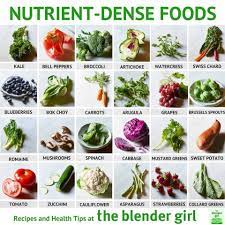When I started my keto journey 5 years ago, I educated myself on the subject before joining the keto team. I am a science nerd and I love to read scientific papers, so that is what I did. I know that not everyone will do such a deep dive, but really, most of the information you need to start and succeed on this diet can be found by "googling" it.
My interest was in the science behind it and its history. So I found out all I wanted to know about this diet and I was very satisfied that not only was it valid, it was very safe. So, I joined the team and have been a member for quite a while.
Starting on a keto diet often brings the misconception that calories don't count as long as you're cutting carbs, which is just where my friend was. However, understanding the role of caloric intake is essential for a successful keto journey. Let's explore why calories matter and how to balance them with the keto diet principles.
Not all calories are the same, either. Proteins and fats, which are the mainstay of this diet, process energy in the amounts of 4 calories per gram for protein and 9 calories per gram for fats. Carbohydrates also process at 4 calories per gram. So when you are faced with choices, and you understand your caloric needs and intake, you can make the best choice possible if you know this.
Calories do matter in a keto diet. Balancing your caloric intake with the quality of food you eat is key to a successful keto journey. Remember, a well-planned keto diet is not just about cutting carbs but about creating a sustainable, healthy eating lifestyle.
Starting on a keto diet often brings the misconception that calories don't count as long as you're cutting carbs, which is just where my friend was. However, understanding the role of caloric intake is essential for a successful keto journey. Let's explore why calories matter and how to balance them with the keto diet principles.
Not all calories are the same, either. Proteins and fats, which are the mainstay of this diet, process energy in the amounts of 4 calories per gram for protein and 9 calories per gram for fats. Carbohydrates also process at 4 calories per gram. So when you are faced with choices, and you understand your caloric needs and intake, you can make the best choice possible if you know this.
The Myth of Unlimited Calories on Keto:
The ketogenic diet focuses on low-carb, high-fat foods, which can sometimes lead to the belief that as long as food fits these criteria, the amount doesn't matter. This myth can be a pitfall for those seeking weight loss or better health.
The Energy Equation:
A calorie is a unit of energy. Regardless of diet, consuming more calories than your body needs can lead to weight gain. The keto diet is no exception. Understanding your body's caloric needs is crucial for achieving your health goals.
Understanding Your Needs:
Calculate your basal metabolic rate (BMR) and adjust your calorie intake according to your activity level.
- Choosing the Right Foods: Opt for nutrient-dense, high-fat, and low-carb foods that align with your caloric goals.
- Monitoring Macronutrients: While focusing on fats, don't ignore the caloric impact of proteins and even the minimal carbs in a keto diet.
While counting calories is important, the quality of those calories is equally vital. Keto-friendly foods are typically more satiating, which can naturally help in reducing calorie intake without feeling deprived.
Common Mistakes to Avoid:
- Overeating "keto-friendly" snacks
- Ignoring portion sizes
- Not tracking your intake
Calories do matter in a keto diet. Balancing your caloric intake with the quality of food you eat is key to a successful keto journey. Remember, a well-planned keto diet is not just about cutting carbs but about creating a sustainable, healthy eating lifestyle.






No comments:
Post a Comment